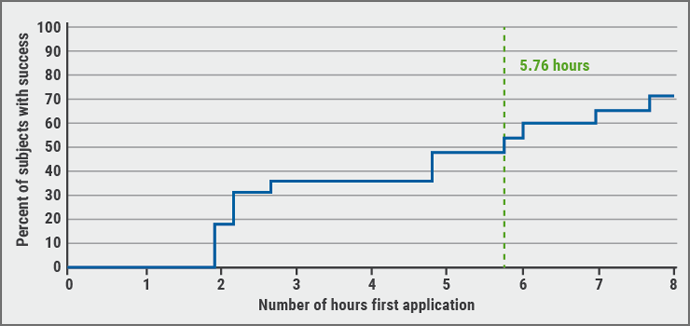"Recent evidence has led to a paradigm shift in how atopic eczema is perceived, from focusing on skin symptoms and associated allergic diseases, to understanding that the disease may be associated with a range of important medical outcomes," Dr. Sinead Langan of the London School of Hygiene and Tropical Medicine (LSHTM) said in a news release.
"However, few studies have assessed if atopic eczema increases the risk of death, a research question we aimed to address in this study," she added.
Using U.K. electronic healthcare records, the researchers matched more than 526,000 adults with atopic eczema (including 34,610 with severe eczema) to 2.5 million adults without the condition. At baseline, participants' median age was 42 years. They were followed for 4.5 years.
In the primary analysis, there was evidence of an association between atopic eczema and a slightly increased risk of dying from any cause (hazard ratio, 1.04; 99% confidence interval, 1.03 to 1.06).
Individual causes of death linked to eczema included infections (HR, 1.14; 95% CI, 0.98 to 1.32), digestive disease (HR, 1.11; 95% CI, 1.03 to 1.19) and diseases of the genitourinary system (HR, 1.08; 95% CI, 0.96 to 1.20).
Although the absolute overall risk of death from eczema was low, mortality risk increased "markedly" with eczema severity and activity, the researchers report in the Journal of Allergy and Clinical Immunology.
For example, patients with severe atopic eczema had a 62% increased risk of dying (HR, 1.62; 95% CI, 1.54 to 1.71) compared with peers without eczema. The strongest associations were for deaths due to infections (HR, 2.85; 95% CI, 1.78 to 4.55), respiratory disease (HR, 2.20; 95% CI, 1.91 to 2.53), diseases of the genitourinary system (HR, 2.10; 95% CI, 1.43 to 3.07) and other causes (HR, 1.91; 95% CI, 1.66 to 2.21).
Limitations of the analysis include a lack of standardized measures of disease severity. Disease severity was gauged based on hospital referral or receipt of specific therapies, which prevented the researchers from disentangling the effects of treatment and severity.
"Atopic eczema affects up to 10% of adults and is becoming more common globally," the researchers note in their paper.
"Right now, we need more research to confirm findings and explore reasons for mortality in severe eczema. But this study has paved the way for future work, which could have a positive health impact for people with severe eczema," Dr. Langan told Reuters Health by email.
The study was funded by the Wellcome Trust. The authors have indicated no relevant disclosures.
SOURCE: https://bit.ly/3oq8mAh Journal of Allergy and Clinical Immunology, online January 27, 2021.
By Megan Brooks
Posted on
Previous Article
« Listening to music after major heart surgery could lower anxiety, pain Next Article
Tamsulosin shows promise for overactive bladder in men »
« Listening to music after major heart surgery could lower anxiety, pain Next Article
Tamsulosin shows promise for overactive bladder in men »
Related Articles
December 17, 2020
Effects IL-13 blocker improves with longer treatment duration
October 9, 2019
Anxiety and depression are common in families of AD infants

April 19, 2019
New and emerging atopic dermatitis therapies
© 2024 Medicom Medical Publishers. All rights reserved. Terms and Conditions | Privacy Policy
HEAD OFFICE
Laarderhoogtweg 25
1101 EB Amsterdam
The Netherlands
T: +31 85 4012 560
E: publishers@medicom-publishers.com

